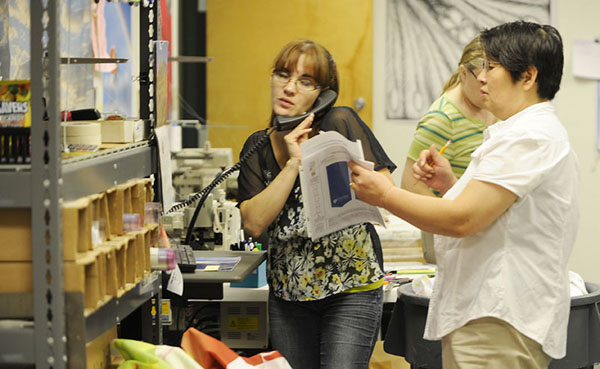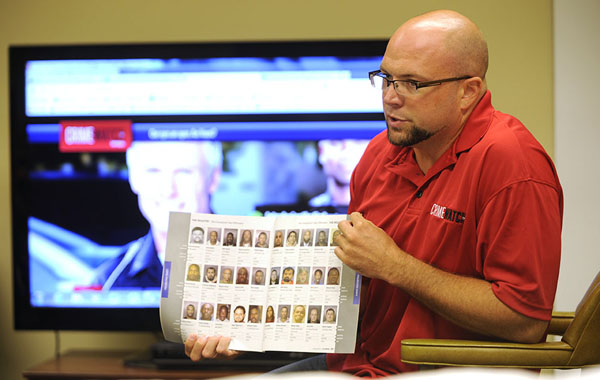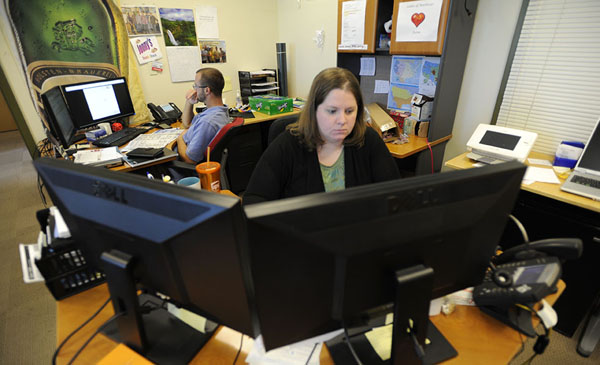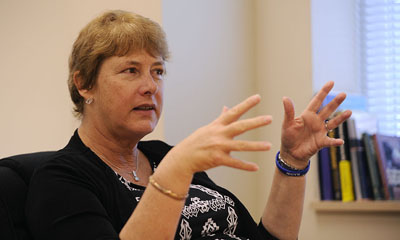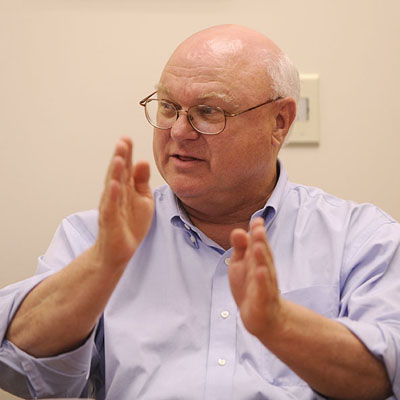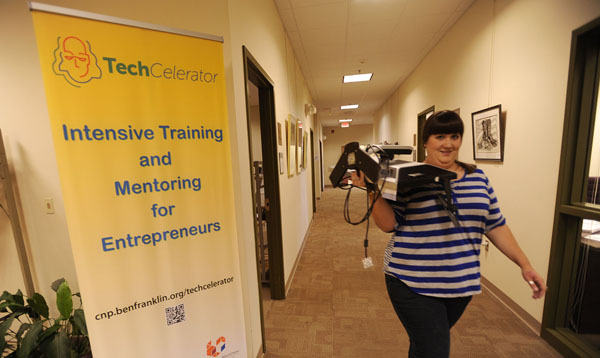Matt Bloom wanted to improve the way police departments informed the public about crime. So in 2009 he launched Community Crime Watch Magazine, which printed the photos of registered sex offenders. Regularly updated local editions were distributed in six south-central Pennsylvania counties.
Over the 2½ years it was published, the magazine – which became CrimeWatch PA – evolved into a statewide publication with pictures of sex offenders and other convicted criminals, along with articles about how law enforcement works.
But print media can only go so far.
Bloom says the idea behind CrimeWatch was to provide hyperlocally targeted, up-to-date information to specific communities. Magazines are too time-consuming for quick publication and too expensive for small-scale distribution. TV stations and newspapers lack the resources to report on every arrest police make. The solution, it appeared, lay in technological advances like social media.
In 2011 Bloom completed a mentoring program run by a Ben Franklin Technology Partners initiative called the TechCelerator. His company has been rechristened as CrimeWatch Technologies and now markets products such as a tool that enables police departments to automatically post news bulletins on their social media accounts and email lists.
The TechCelerator program began last year when the Ben Franklin Technology Partners of Central and Northern Pennsylvania was brought in to serve entrepreneurs at the Murata Business Center, an incubator in Carlisle. It offers eight weeks of classes and specialized mentoring to entrepreneurs who are in the early stages of starting technology-based businesses, along with people who have nascent ideas for businesses.
The idea behind the program is to get promising companies off the ground quickly, explains Richard Heddleson, director of business development for the regional office of Ben Franklin's Transformation Business Services Network. If a venture isn't destined to succeed – or if it's just not the right time – the goal is to save the time and effort spent on it.
“We're trying to accelerate the entrepreneurial process,” Heddleson says. “If the thing's going to take off, great. If it's not going to take off, let's find out fast.”
So far 32 emerging and potential businesses have started with the TechCelerator, and 24 have completed it. They've had ideas for new software applications, solar batteries and more.
“We try to get people from 'I have an idea' to 'I have a company,' ” says Pam Martin, executive director of Ben Franklin's south central regional office.
Currently, eight of the business ideas that have completed the TechCelerator program in Carlisle are active. Six are bringing in revenue, Martin says.
Helping businesses grow
Participants in the TechCelerator take classes on topics such as presentation skills and networking. They receive one-on-one mentoring from Ben Franklin staff members and entrepreneurs who have begun companies in similar industries.
Bloom, of CrimeWatch Technologies, learned valuable things about starting a business, like the importance of seeking funding from non-bank investors who are more tolerant of risk.
After completing the program, he started building his team that now includes six other employees. Their clients include agencies in Adams County and statewide.
CrimeWatch develops tools that balance the public's need to know about crimes and dangerous people in their communities with police departments' need to disseminate these tips carefully.
“The people want access to this information,” Bloom says. “It is sensitive data, and it needs to be handled sensitively.”
From law enforcement's point of view, the more people know to look out for a fugitive, for example, the more likely it is that the fugitive will be caught. On the other hand, the spread of information that is incorrect or able to compromise an investigation could have serious consequences.
Its products include a Web-based tool for law enforcement agencies to communicate with each other, along with a portal to automatically distribute information on websites and through social media. Departments can delete content in a way that makes it entirely disappear from the view of third parties. A mobile app platform, and tools enabling people to find location-specific crime information, is expected to be released early next year.
“We try to get the police to communicate with their constituents in a way that gets those citizens to communicate back,” explains John Donnelly, CrimeWatch's director of operations.
Expanding to other cities
While the TechCelerator program was growing in Carlisle, business boosters in State College were looking for a way to make it easier for faculty at Penn State to turn their research into profit-making enterprises.
In March the TechCelerator expanded to the university's campus as a partnership of seven organizations from Penn State, Ben Franklin and Centre County. The program was tailored for academic researchers who weren't accustomed to the workings of the business world.
One of the State College TechCelerator's programs is a 90-minute session that details how academic research becomes a startup. An eight-week session, similar to that in Carlisle, has graduated six companies so far. They've included ventures spun out of research on subjects as diverse as E. coli bacteria and laser imaging. All have moved forward, taking steps from launching a website to putting products on the market.
“I think our first round was a resounding success,” says Don McCandless, director of the TechCelerator in State College. “If we can get 10 startups a year, we can get some momentum going.”
The TechCelerator also assists existing business like Ag Integrated, which makes software aimed at increasing yields in farmers' fields.
Duane Reese, who grew up on a dairy farm west of State College, started the company in 2007. He'd spent the previous seven years working in the field of precision agriculture, the use of technology to get the most out of each field.
Reese says more farmers will have to use precision agriculture techniques as the world's growing population needs to be fed.
“The need for food is going to outpace the need for oil,” he says. “We're in the right industry at the right time.”
Most of Ag Integrated's customers are fertilizer dealers that serve Midwestern farmers who grow crops such as corn and soybeans. The company, which employs 19, develops proprietary software programs for customers and also makes its own products.
One program integrates information and makes it accessible on computers, tablets and smart phones. This is important because growers collect data in several software programs, but these programs rarely talk to each other. “One may be collecting something that you need in another one,” Reese says.
This summer Ben Franklin awarded AgIntegrated $150,000 in funding to build a software platform that will enable growers to collect data from a variety of software programs and use it in one place. The company plans to put it on the market in early 2013.
As the TechCelerator program has grown in two cities, the Ben Franklin Technology Partners plan to expand it to other parts of the state. The Ben Franklin Technology Development Authority recently authorized funding to begin TechCelerator programming at Penn State Hershey. There is also talk of setting up a branch in Erie.
As Martin says, the next great business can come from anywhere.
“We are non-judgmental because you just never know,” she says. “You never know what an idea's going to evolve into.”
REBECCA VANDERMEULEN is a freelance writer who lives near Downingtown. As she tells friends out of state, that's between the cheesesteaks and the Amish. Send feedback here.

